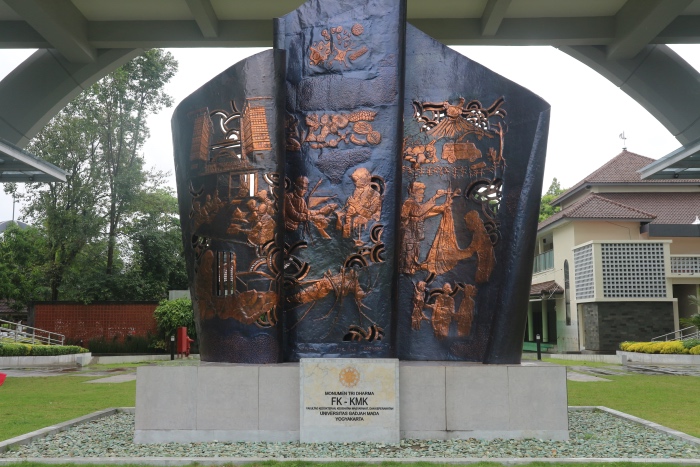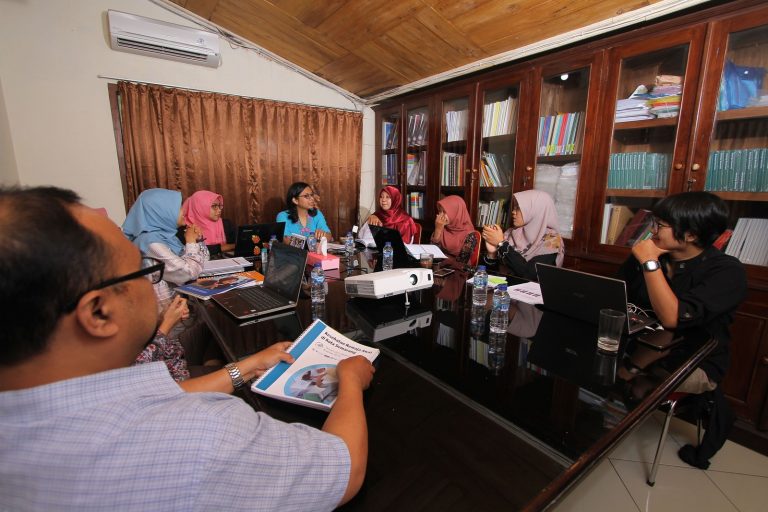About Us
Center for Reproductive Health is an interdisciplinary research office whose research and learning are aimed at sexual and reproductive health, maternal and child health, and population change.
- Improving maternal and child health (namely: safe-motherhood and child survival interventions);
- Population and family planning programs and policies;
- Prevention and control of STDs and HIV/AIDS infections;
- Social and economic development is linked to reproductive health status;
- Health policy, program planning and evaluation;
- Demographics;
- Design and financing of the health service system for reproductive health related issues.





- Develop and maintain demographic and health surveillance to understand the dynamics of reproductive health behavior in the community
- Conducting research leads to a new reproductive health intervention
- Developing an internationally recognized educational center to improve professional knowledge and skills in the field of reproductive health in collecting, processing, analyzing and using demographic and health surveillance data
The Center for Reproductive Health, a research institute located at the Faculty of Medicine, Public Health and Nursing, Gadjah Mada University, was founded in 1994. Before changing its name to the Center for Reproductive Health based on the Decree of the Dean of the Faculty of Medicine, Gadjah Mada University Number: UGM/KU/85/KP/01 /39 which was established on June 29 2007 was named the Central Health and Nutrition-Research Laboratory (CHN-RL).
At the beginning, CHN-RL was based in Purworejo. An institution that offers the opportunity to gain experience in data collection and analysis of large-scale population and clinical-based epidemiological studies. Additionally CHN-RL has been used to facilitate faculty and student research, as well as efforts to test new interventions and training areas for government employees.
CHN-RL itself is a member of the INDEPTH network connecting scientists working on populations and demography around the world. CHN-RL also helps and facilitates postgraduate students from affiliated departments with various backgrounds, coming from health centers, BKKBN, Ministry of Health and other educational institutions.
Leadership Relay
Since the name change from CHNRL to Center for Reproductive Health there have been two leadership events. The first leadership occurred in the 2000-2018 period. The second leadership occurred in the 2019 – present period.
Center for Reproductive Health Studies team members generate scientific knowledge and public health ideas through their research, strengthen technical and leadership skills through educational programs, and increase national capacity through collaborative projects, including collaborations with other developing countries (for example: with the INDEPTH network and INCLEN) and developed countries (for example: Johns Hopkins University, Sweden’s Umea University, and UCLA).
The Center for Reproductive Health applies and develops a variety of methods drawn from demography, biostatistics, epidemiology, nutrition, developmental psychology, sociology, health services research, economics, communication sciences, policy analysis, behavioral sciences and related disciplines in research and professional practice. The Kespro Center team members are drawn from expertise in many fields, namely: obstetrics & gynecology, pediatrics, reproductive biology, epidemiology, biostatistics, demography, economics, ethics, anthropology, political science, and sociology.
Conduct demographic and public surveillance at the household level to understand reproductive health behavior as well as the descriptive, nutritional, epidemiological, demographic and socio-economic determinants of health that are fundamental to health planning and the provision of reproductive health services.
To develop public health prevention and intervention measures to accelerate the achievement of MDG goals relating to reproductive health issues, including the development of new contraceptive technology.
Evaluate the effectiveness and efficiency of reproductive health programs targeted to large populations, such as screening, immunization or vaccination programs for mothers and children, and micronutrient and food supplementation programs for target groups.
Offers facilities for degree and non-degree training in public health and reproductive health sciences applying demographic and health surveillance.